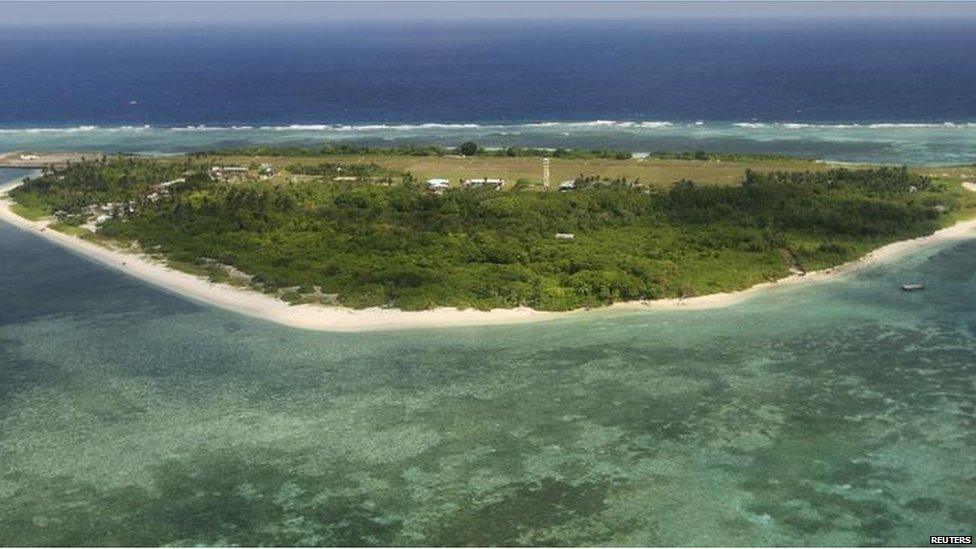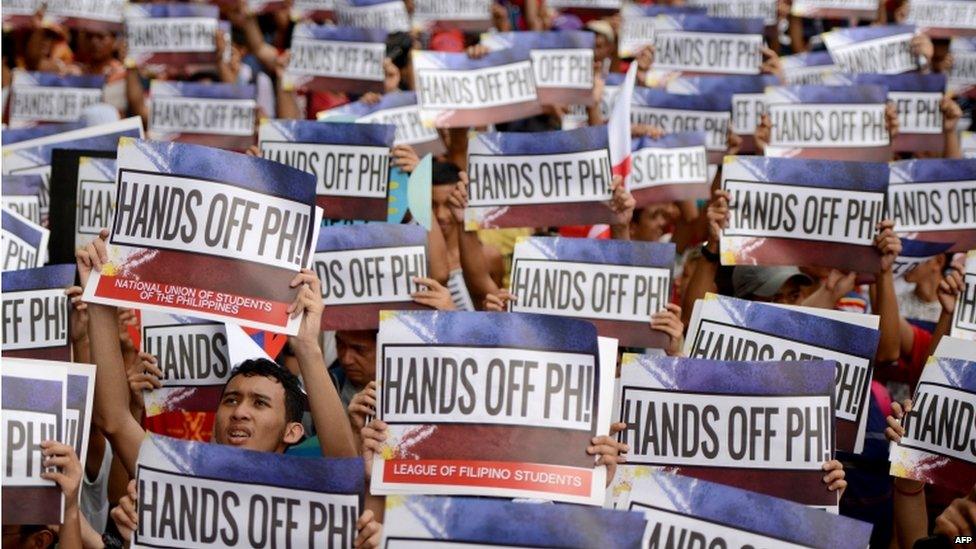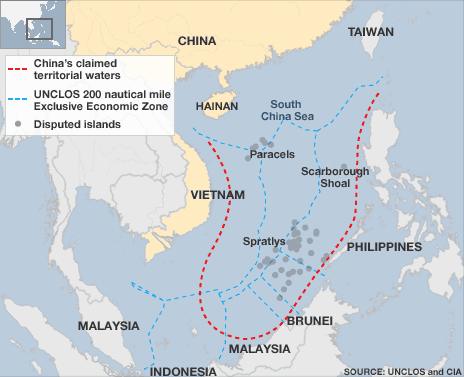South China Sea: Hague panel can rule on Philippines-China dispute
- Published

The Philippines and China both claim the Spratlys, which includes Pagasa island
An international arbitration panel has ruled that it can hear a case brought by the Philippines in its territorial dispute with China, involving a group of islands in the South China Sea.
The Permanent Court of Arbitration, based in The Hague, rejected China's argument that the dispute was about sovereignty - and so beyond its remit.
It will now begin hearings on the case's merits, under a UN Convention.
China's claims in the South China Sea are contested by its Asian neighbours.
The Philippines has had diplomatic spats with China over the Scarborough Shoal and Spratlys in particular, rejecting its claims to those areas.
It says China's "nine-dash line", which China uses to demarcate its territorial claims, is unlawful under the UN Convention on the Law of the Sea, which both countries have signed.

Filipino activists have protested outside Chinese consular offices in Manila over China's construction activities
The Philippines had asked the Hague-based panel to consider its case under the convention, which falls within the panel's jurisdiction.
The panel decided on Wednesday, external that it had the authority to hear seven of Manila's submissions under the convention.
The court said in a statement that it rejected the argument by China that the "dispute is actually about sovereignty over the islands in the South China Sea and therefore beyond the tribunal's jurisdiction".
The court instead ruled that the case reflects "disputes between the two states concerning the interpretation or application of the convention".
China has boycotted the proceedings, insisting that the panel has no authority to rule in the case.
No date has been set for further hearings, which will determine the merits of the Philippines' arguments.

China claims almost the whole of the South China Sea, dismissing claims to parts of it from Vietnam, the Philippines, Taiwan, Malaysia and Brunei.
Recently, China has begun carrying out aggressive land reclamation and construction projects on several reefs, prompting the US to call for a halt on such efforts.
Satellite images show that, among other things, China is building an airstrip on reclaimed land on Fiery Cross Reef in the Spratly Islands.
China has argued that it is acting lawfully based on its sovereign rights to the disputed areas.
The South China Sea, believed to be rich in resources, is a strategic waterway through which roughly a third of the world's oil passes.
The Permanent Court of Arbitration, external is an intergovernmental organisation with 117 member states which was established in 1899 to encourage the peaceful resolution of disputes.